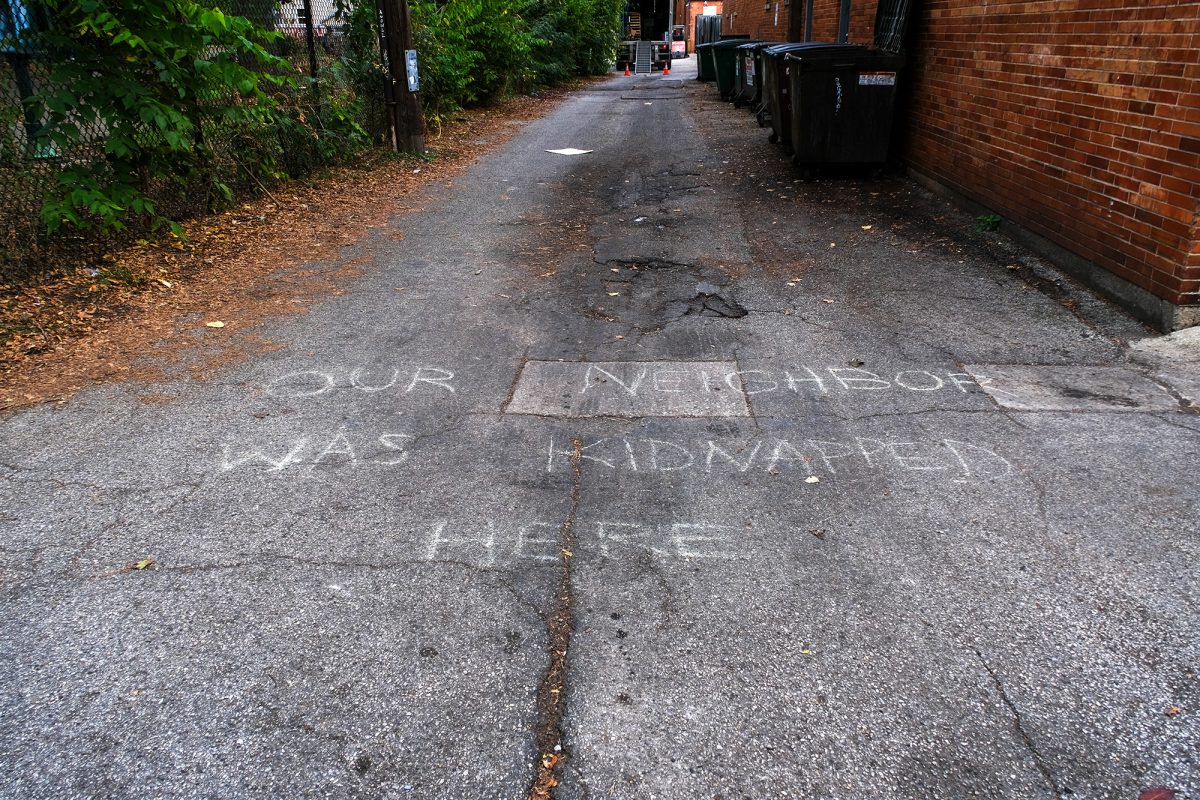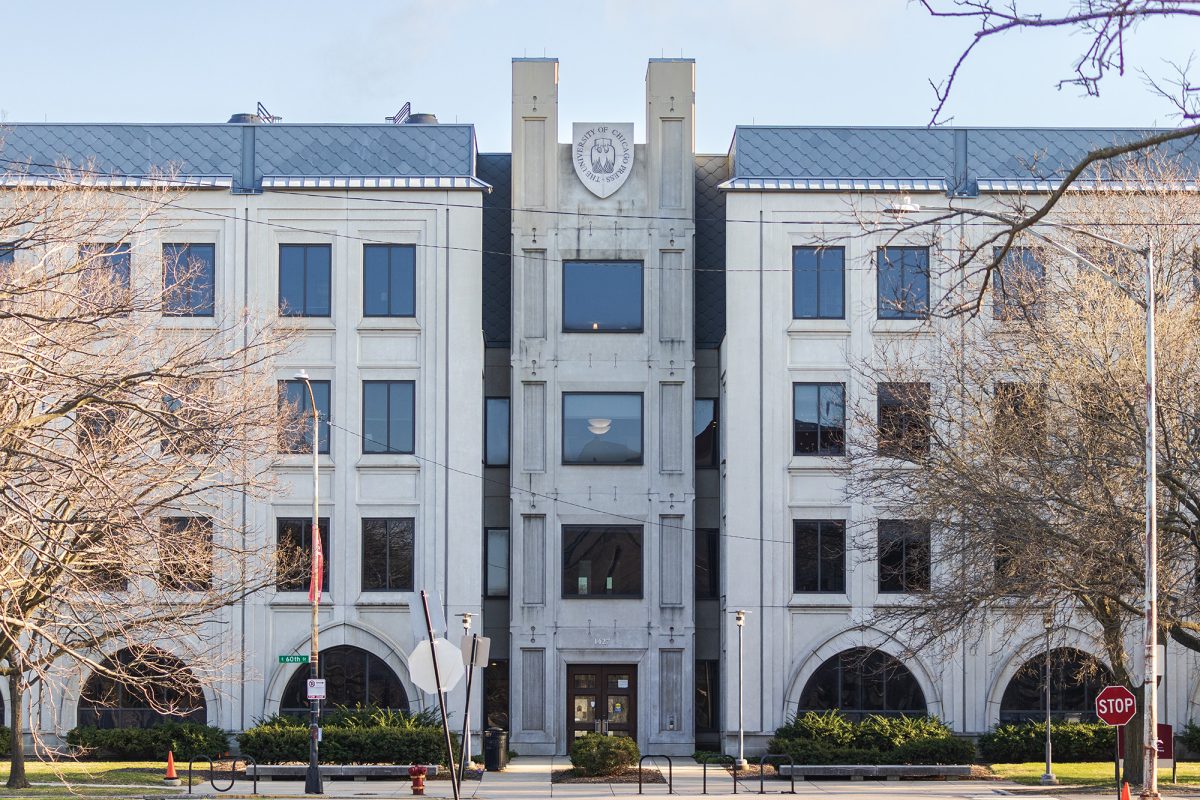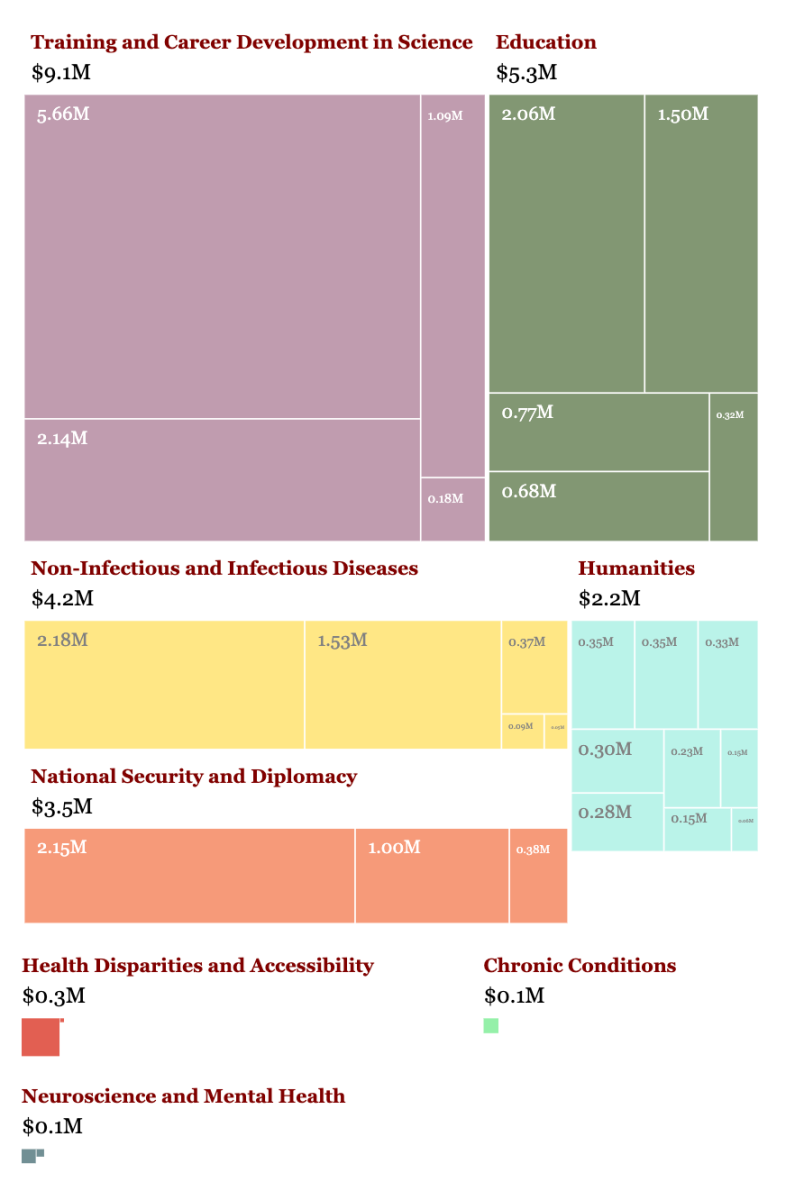A Department of Justice lawsuit filed in federal court on Thursday against Chicago, Cook County, and Illinois alleges that city, county, and state statutes interfere with the enforcement of federal immigration law.
If successful, the lawsuit could have wide-ranging effects on public safety and deportation rates, according to Melissa Segarra, a staff attorney at the UChicago Law School Immigrants’ Rights Clinic.
The suit alleges that “sanctuary laws” like Chicago’s Welcoming City Ordinance and Illinois’s TRUST Act, which limit local law enforcement’s cooperation with federal immigration authorities, are “deliberately impeding federal immigration officers’ ability to carry out their responsibilities.”
The suit also names Illinois Governor J.B. Pritzker, Chicago Mayor Brandon Johnson, Chicago Police Superintendent Larry Snelling, President of the Cook County Board of Commissioners Toni Preckwinkle, and Cook County Sheriff Thomas Dart as defendants in their official capacities.
The legal move comes after federal agencies began conducting immigration-related arrests in Chicago on January 26.
Since his inauguration on January 20, President Donald Trump has pushed to crack down on immigration and end birthright citizenship and humanitarian parole, the Biden-era policy that allowed Cuban, Nicaraguan, Haitian, and Venezuelan immigrants to legally access temporary work in the U.S.
Lawyers with whom the Maroon spoke expressed extreme skepticism that the Department of Justice’s arguments would prove successful, citing the anti-commandeering doctrine. The doctrine, which dates to the 1992 case New York v. United States, limits the federal government’s ability to compel local authorities to enforce federal law.
UChicago Law School federalism expert Bridget Fahey also cast doubt on the lawsuit’s legal arguments, saying “the law is on Chicago’s side. The government is asking for a never-before-recognized exception to the anti-commandeering rule.”
The anti-commandeering doctrine is a “major roadblock for forcing state and local agencies to comply with ICE,” according to Jacob Hamburger (J.D. ’21), a Cornell Law School immigration federalism lawyer. U.S. Immigration and Customs Enforcement, or ICE, is the federal agency within the Department of Homeland Security which enforces immigration law.
Hamburger told the Maroon that the Trump administration likely “singled out” Chicago “as a liberal, democratic city run by a left-leaning government.”
“It’s not the only city that symbolizes these things and is a sanctuary city, but it’s one of the big ones,” Hamburger said.
Hamburger said that “to some degree the purpose in filing this [lawsuit] is to discourage other cities from having or keeping policies like Chicago’s,” regardless of whether the lawsuit is successful. New York City, Los Angeles, and Philadelphia similarly consider themselves sanctuary cities. Many smaller cities also choose not to aid ICE due to budget concerns associated with diverting local law enforcement resources, Hamburger said.
“The Trump administration has long used lawsuits to advance political arguments,” Fahey told the Maroon, when asked why the Department of Justice would bring a lawsuit on such tentative legal grounds. “One way of gaining publicity for a federal political goal is to file a lawsuit. But that strategy—using courts to advance political arguments—is vulnerable to the rule of law.”
Fahey did not think the Department of Justice had a sufficient case for overturning the precedent.
“The first Trump administration made the argument that immigration law was exceptional, but the courts have never accepted any policy exception to the anti-commandeering precedent,” she said.
Dorothy Pytel, Hyde Park Refugee Project (HPRP) founder, told the Maroon she was not surprised by the lawsuit.
“Now there’s a full scale assault on all government. I think people are surprised by that. We weren’t surprised, because we totally expected that there would be the targeting of immigrants because that was the message that was being sent. So we prepared,” she said.
HPRP began supporting newly-arrived refugees in 2015 and continued to do so throughout the first Trump presidency, despite challenges to Chicago’s sanctuary status and the 2017 travel ban targeting six Muslim-majority countries during the last Trump administration, Pytel explained.
Amid the Trump administration’s planned immigrant raids and deportations in Chicago, HPRP and partnering organizations are distributing immigrants’ rights information.
Immigrant raids and deportations could have a “ripple effect” throughout the local community, according to Pytel. HPRP runs an afterschool program in neighboring schools with local volunteers, some of whom are high schoolers.
“If a family disappears overnight, the students who build a relationship with that family…will notice that and will, I think, be impacted at a minimum,” Pytel said.
Pastor Nancy Goede of Augustana Lutheran Church of Hyde Park said her church plans to stand with migrants, whom she calls “friends.”
After reports of planned immigrant raids surfaced last month, the church began to plan for a worst-case scenario, and its council voted to post a sign stating that ICE and Border Control agents “do not have consent” to enter the church without a “valid judicial warrant.”
“Things are moving very fast now and you can see lots of people taking steps to appease and acquiesce but it’s too early for that,” she told the Maroon.
“The people who are under our care here, they’re very vulnerable,” Goede said. “I think it would be wrong to do anything to help the federal government round them up.”
The National Immigrant Justice Center and Illinois Coalition for Immigrant and Refugee Rights released a joint statement on Thursday in support of Illinois, Chicago, and Cook County “as they face recycled and unsupported legal attacks from the Trump administration regarding their constitutionally sound policies to not participate in civil immigration matters.”
The statement further explained that law enforcement agencies have long supported the laws targeted by the lawsuit, as they “know that involving local police in federal deportation efforts not only strains their agencies’ own capacity to address public safety concerns, but also degrades community trust.”
Governor Pritzker’s office said in a Thursday statement that the bipartisan TRUST Act, one of the sanctuary laws the lawsuit accused of interfering with federal immigration policies, is consistent with federal law.
“Illinois will defend our laws that prioritize police resources for fighting crime while enabling state law enforcement to assist with arresting violent criminals,” Pritzker’s office wrote. “We look forward to seeing [the Trump administration] in court.”
In a Friday statement, Mayor Johnson’s office said (retaining original formatting): “The complaint is under review by the Law Department. Following a full review, we will respond in due course. Chicago is and will remain a welcoming city, with welcoming people who work beside their neighbors to build strong communities where you can still raise a family.”
The Cook County Sheriff’s Office said on Thursday, “Existing state law and local ordinance prescribe our Office’s responsibilities regarding federal immigration regulatory programs. Those laws remain in place. We will continue to follow all local, state, and federal laws.”
The Chicago Police Department declined to comment, citing the pending nature of litigation.
The Department of Justice, ICE, and the Department of Homeland Security, which oversees ICE, did not respond to requests for comment.
The White House did not respond to multiple email requests for comment. When asked why the White House Press Office could not be reached over the phone, a White House switchboard operator told the Maroon the Press Office was undergoing a “rough transition.”
Zachary Leiter and Nathaniel Rodwell-Simon contributed reporting.




















Matthew G. Andersson, '96, Booth MBA / Feb 11, 2025 at 9:30 am
Anti-commandeering doctrine is not relevant, unless the UChicago Law professor is ignoring constitutional law and code from which ICE acts. This appears circular reasoning, selectively invoking prior narrow ruling, while leaving out cases that falsify a logical fallacy. Missed is the constitutional intention of protecting legal citizens, versus governments. She could, interestingly, help students understand the 10th Amendment versus Article 1, and the invasion and war exception which turns her argument upside down, creating a very different mandate. If federal funding were otherwise tied to compliance, an anti-commandeering doctrine would be abandoned. In the Law school’s ideology, Lochner must be a commandeering via freedom of contract and liberty, by the 14th Amendment, except when it isn’t: as when the 14th was stretched under Plyler v. Doe, overturning Texas immigration law. Her law school is partly captured by the “American Constitution Society” which seeks to define academic law as itself progressive ideology regardless of logical inconsistency.
Alex / Feb 13, 2025 at 1:05 am
That was complete nonsense.
It’s long settled law that states don’t have to enforce federal laws.
And any invasion and war exceptions don’t apply since neither is happening.
You need to look up actual case law since you don’t have a clue.